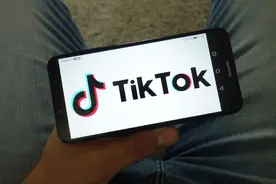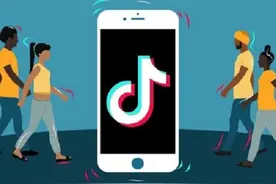Photo source: New Beijing News Online | Lian Qingchuan has never had a successful case in the history of modern enterprises in China since 2019, but TikTok, the international version of TikTok, has been sniped in several countries recently, facing the potential risk of full closure.The latest one came from its second largest market in the world, the United States.On July 6, US Secretary of State Pompeo fired the first shot.In an interview with a Fox News spokesman, he said that he was considering closing TikTok.Not serious enough, he added: We are very serious about this.On July 8, President Trump of the United States basically sentenced TikTok to death in the United States."We are thinking about it," he said in an interview Then, he gave the exact reason: to retaliate for what China had done in the new epidemic.Before that, on June 29, India blocked 59 Chinese APPs, including TikTok and WeChat, for the same reason of national security.India is the world's largest market for TikTok, with 300 million users; On July 5, a high-ranking Australian legislator suggested to the Congress that TikTok be banned for the same reason of national security - it may send information to the Chinese government** Multi country ban on TikTok may cause domino effect * * However, even after the complete loss of markets in the United States, India and Australia, it seems that it will not cause a fatal blow to the number of TikTok's global users.By the first half of 2020, its cumulative download volume in the world has reached an amazing 2 billion times.In the United States alone, it has downloaded 165 million times, almost half of the population of the United States.With 300 million in India and 16 million in Australia, relevant countries have downloaded nearly 500 million.Why does TikTok look like he's in danger? The problem is not the proportion of less than 500 million, but the domino effect that may be generated after the actions of India, Australia and the United States.Now, India is in a state of confrontation with China at the border.If the blockade is to prevent from the hostile state, then the actions of Australia and the United States have put TikTok on the oil pan of geostrategic competition: it will test whether followers choose the United States or China.The three countries banned TikTok for the same reason: national security.National security is a panacea in the government's behavior.If anything can't explain it, it's the only way to use it.Photo source: The public and media of Pixabay have no right to inquire about the specific details of national security considerations.This is not like an administrative act of the government or a judgment of the court.You have more or less the right to administrative review, information disclosure and appeal.In the past, when American media dealt with the government, national security was the most troublesome problem, because even if the media won, they often faced huge fines or even the risk of individual journalists being jailed.No one will take this risk for the parent company's company in China.One way is through congressional hearings.But only if Congress is willing to hear.This is not TikTok's first trouble in the United States.In fact, the United States
-
Home
-
Product
SolutionsmanagementUnified management of multiple mobile phones and accounts
Marketing automationUse scripts instead of manual automation to run APP applications
Self-developed scriptJavascript can be used to develop all mobile terminal automation operations
SolutionsData monitoringMulti-dimensional monitoring account and peer online red data
analysis reportMulti-dimensional analysis report of data
-
About






Comment Cancel reply